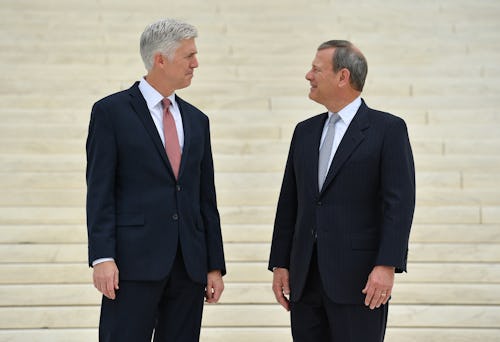SCOTUS’s conservatives just condemned a man to die despite apparent racial bias in his jury
Justice Sonia Sotomayor blasted the ruling, saying it “poisons public confidence” in the judicial system.

The conservative-skewed Supreme Court affirmed the death penalty for a convicted murderer on Monday, despite ample evidence suggesting overt racial bias on the part of a member of his original jury.
Kristopher Love, who is Black, was condemned to death row in 2018, after he was convicted in a murder for hire case in Dallas, Texas. However, Love and his legal team have argued that his conviction was tainted by juror Zachary Niesman, who is white, and who claimed during the preliminary jury screening process that “statistics show more violent crimes are committed by certain races,” a belief he said he held based on “news reports and criminology classes” he’d taken. He later clarified that he explicitly meant “non-white” races tended to be more violent than white people. Niesman was nevertheless included as a juror, despite protestations from Love’s attorneys.
While the court’s conservative majority did not write an opinion explaining the 6-3 decision to uphold Love’s death sentence, the three liberal justices signed on to a dissenting opinion authored by Justice Sonia Sotomayor, who blasted the judicial reasoning used by Texas to allow an obviously compromised juror to remain on the case.
“When racial bias infects a jury in a capital case, it deprives a defendant of his right to an impartial tribunal in a life-or-death context, and it ‘poisons public confidence’ in the judicial process,” Sotomayor write in the introduction to her dissent, citing a previous SCOTUS ruling. “The seating of a racially biased juror, therefore, can never be harmless. As with other forms of disqualifying bias, if even one racially biased juror is empaneled and the death penalty is imposed, ‘the state is disentitled to execute the sentence.’”
“Over time, we have endeavored to cleanse our jury system of racial bias,” she explained elsewhere in her dissent, noting that there’s no reason to have mechanisms to detect racism from jurors if the court isn’t interested in acting on that information. “One of the most important mechanisms for doing so, questioning during voir dire, was properly employed here to identify a potential claim of bias. Safeguards like this, however, are futile if courts do not even consider claims of racial bias that litigants bring forward.”
“The task of reviewing the record to determine whether a juror was fair and impartial is challenging, but it must be undertaken, especially when a person’s life is on the line,” she stressed, highlighting the stakes of Love’s case.
In an email to Law & Crime, Love’s attorney John Tatum affirmed his support for Sotomayor’s opinion, saying, “Obviously, I agree with the dissent that our legal system needs to cleanse itself of racial bias in jury selection and stop improperly using harmless error rules to block the application of laws we already have to protect the accused citizen from any racial bias in the application of criminal Justice in this country.”